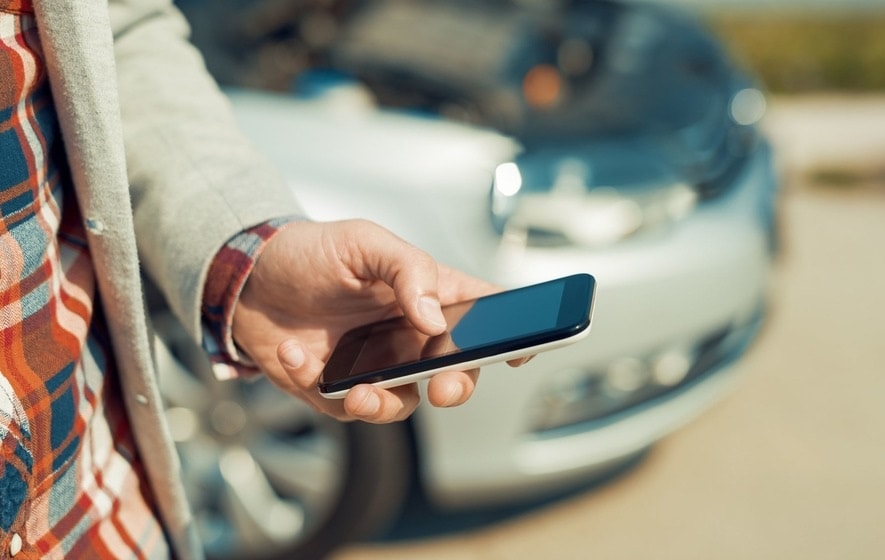Smartphones have become an essential part of our daily lives. So having a phone with a reliable signal is more of a requirement than a luxury for most people these days. However, signal reliability isn’t often something considered when people are choosing a new phone.
We’ve all experienced problems related to poor cell signal such as voice distortions, echoes, line noise, garbled sound, choppy sound, muffled sound, and many more. But what causes these signal issues in the first place. And, more importantly, does the make and model of your smartphone affect the strength of your cellular signal?
There are a few main causes for cell phone signal problems. Geographic distance from the nearest cell phone tower, interference from building materials, obstruction from nearby objects, and other environmental factors such as trees, mountains, metal, glass, concrete, thick walls, nearby buildings, and even weather can all wreak havoc with your cell phone signal. But your actual cell phone can also have a lot to do with the quality of signal you’re receiving.
Smartphone Features That Affect Signal
Not all smartphones are created equally. In addition to the cool features and technological advances you’re looking for, you should also consider phone features that will ensure you get the best possible cell signal.
Age
When talking about smartphones and signal reliability, it is almost always the case that newer is better. As networks update their technology, new phone models are also updated to make the best use of the network technology. Older phones can’t benefit from the network technology upgrades because their capabilities are limited by their own outdated technological specifications. A newer phone will almost always provide superior signal strength and better call quality than an older phone.
Antenna
Though you may not think about it, your cell phone uses an antenna to access cellular signals. When cell phones were first invented, the antennas were external, and sometimes very large. With advances in cellular technology over time, the antennas have been transitioned to be internal. This obviously creates a much better aesthetic for the phone, but can sometimes result in a poorer signal because internal antennas are susceptible to being blocked by a variety of external factors, including cell phone cases and positioning. Though problems like that have become less common as smartphone technology advances, it can still be a factor in signal strength and reliability.
Software
Smartphones are essentially pocket-sized computers and run on operating system software. For example, iPhones use Apple’s iOS operating system while Samsung devices run on the Android system. The overall performance of any cell phone depends on the quality of the software operating system. Smartphone software controls everything from how quickly the phone relays the cellular signal to the battery life and much more. Depending on the developers’ goals, signal relay time could be compromised to provide longer battery life or vice versa. So, the software in the smartphone really can play a big part in the quality of cell signal.
Carrier
Cell phone carriers operate independent networks that rely on their own towers and technology. That’s why some phones get service in a particular area and others do not. So, if you regularly have cell signal problems in a particular place, the fault might be your phone’s carrier, instead of your specific phone. Many phones are carrier-specific, though, so if you change carriers, you will also need to get a new phone.
As you can see, there are a lot of factors in individual phones, as well as the surrounding environment, that can affect the signal reliability of your smartphone. Luckily, getting a brand new smartphone isn’t the only solution, if you struggle with poor cellular signal.
Can a Cellular Signal Booster Help?
If you often struggle with poor cell signals, a cellular signal booster might be the answer you’ve been searching for.
A signal booster improves cell phone signal in a particular area by capturing available signal via an exterior antenna, amplifying the signal with a repeater, and then rebroadcasting the improved signal into the designated coverage area. A signal booster gives you a much stronger cell phone signal, which results in clearer calls, faster data transfer speeds, and fewer dropped calls.
While a signal booster can’t create a signal where none exists, it can improve poor incoming signals almost anywhere. There are signal boosters available for every need, including home, office, and even mobile boosters for your car, RV or boat.
If you love your current smartphone, but struggle with poor cellular signal, then a cellular signal booster could be the solution you’ve been looking for.
Here are our favorite cellular signal boosters to recommend. There’s a solution for every need and every budget.
For Home:
weBoost Installed Home Complete
For Car:
For RV:
Wilson Amplifiers is the leading provider of cell phone signal boosters. Cell phone boosters amplify cellular signal for any phone with any carrier for home, office, or vehicle.
Skip the dropped calls, slow download speeds, and spotty coverage for the smooth, uninterrupted bliss of your very own boosted signal, courtesy of Wilson Amplifiers:
- Free consultation (ask us anything) with our US-based customer support (sales@wilsonamplifiers.com) or call us at 1-800-568-2723.
- Free shipping.
- Better signal or industry-leading 90 money-back guaranteed. No questions asked.
- We want everyone to be satisfied, so we provide lifetime technical support and a 2-year warranty for all products.
Ask us anything and we’ll be glad to help.
